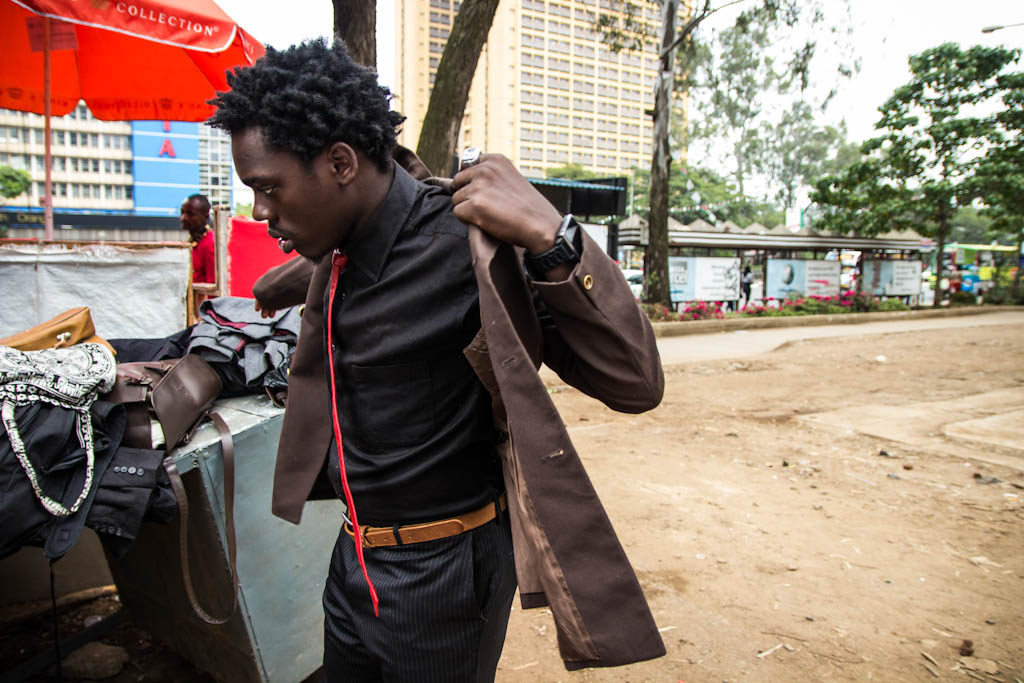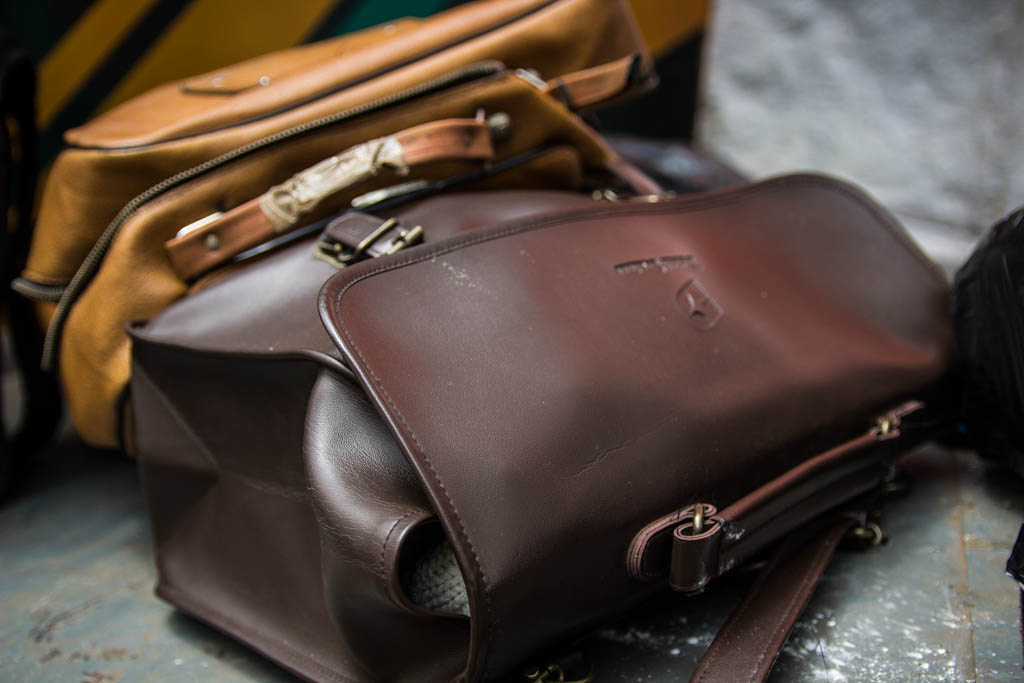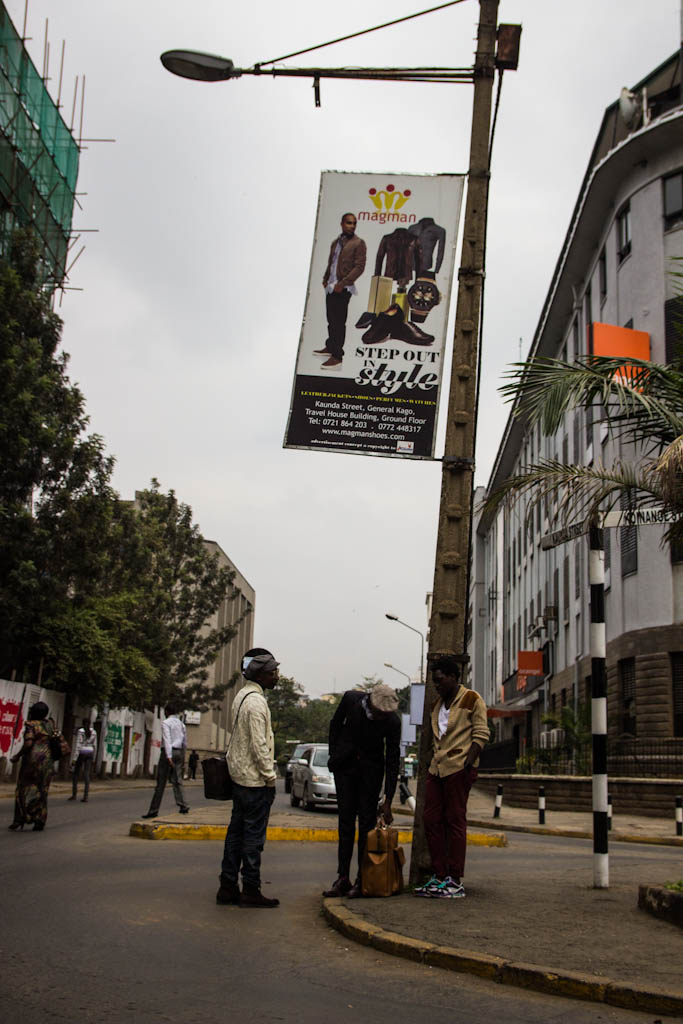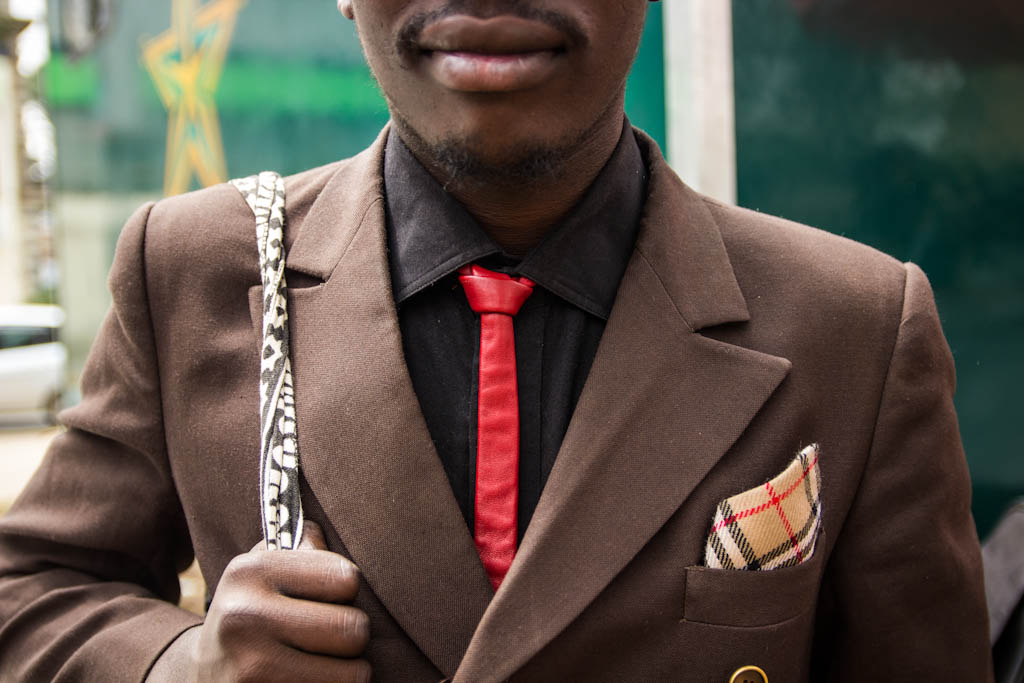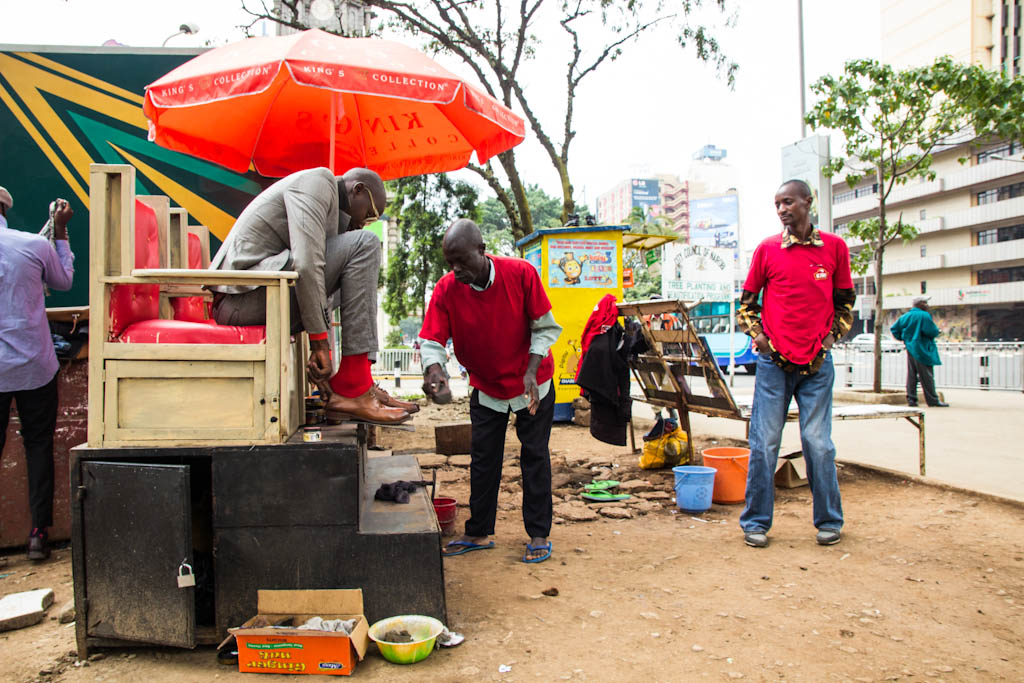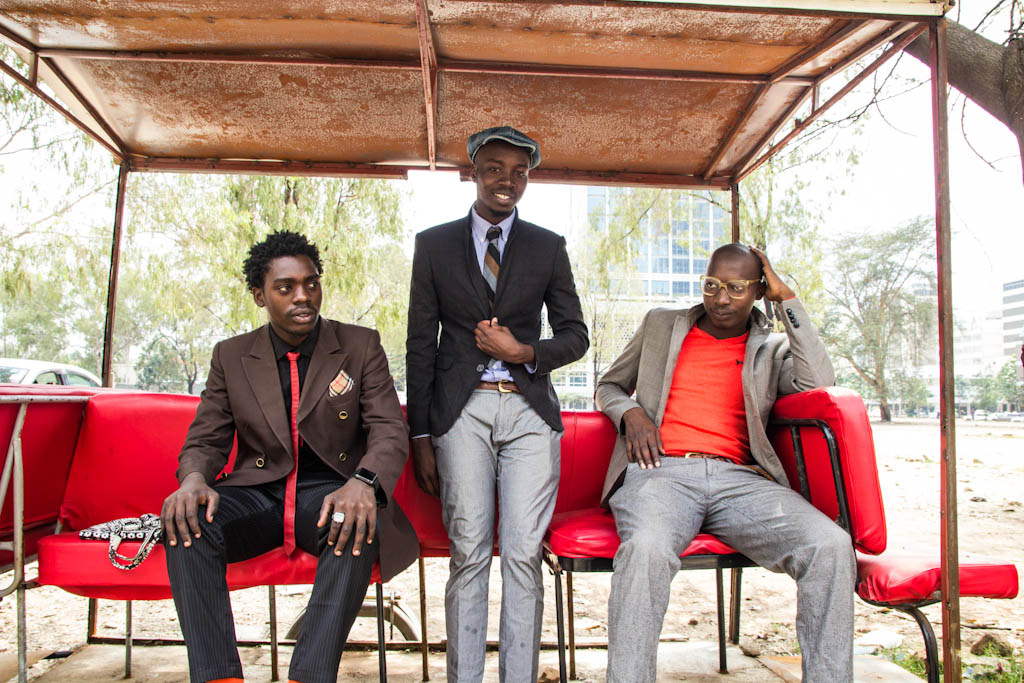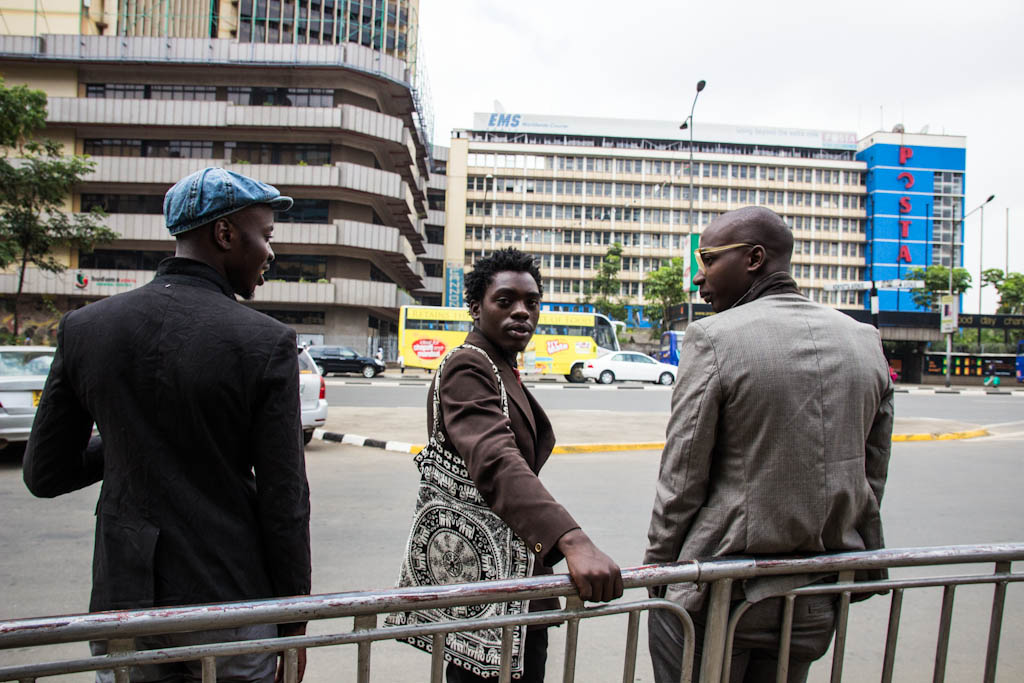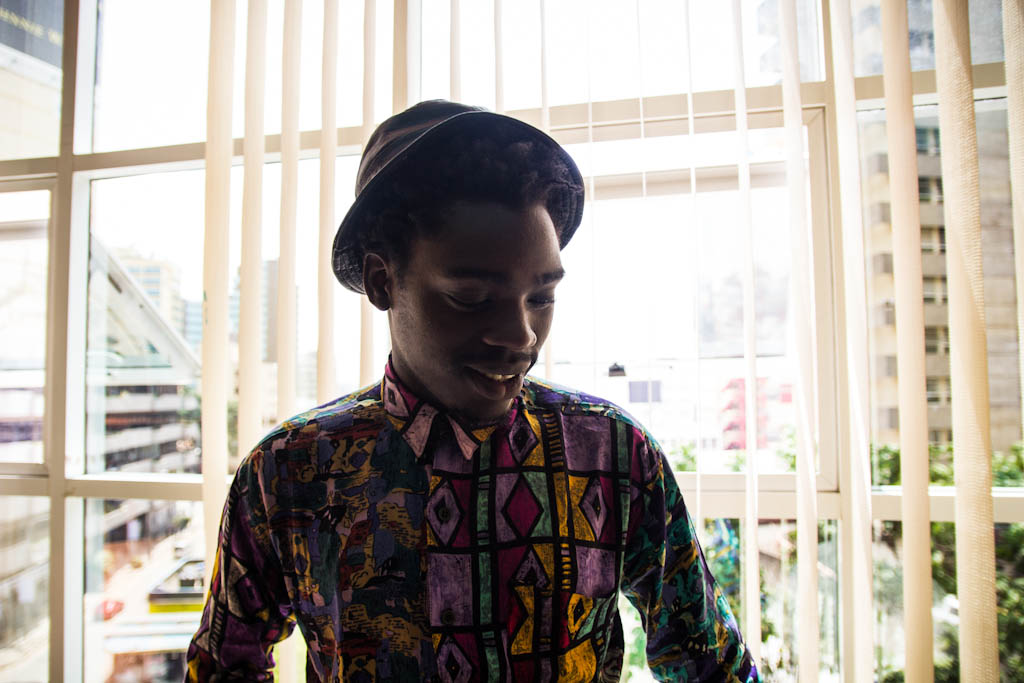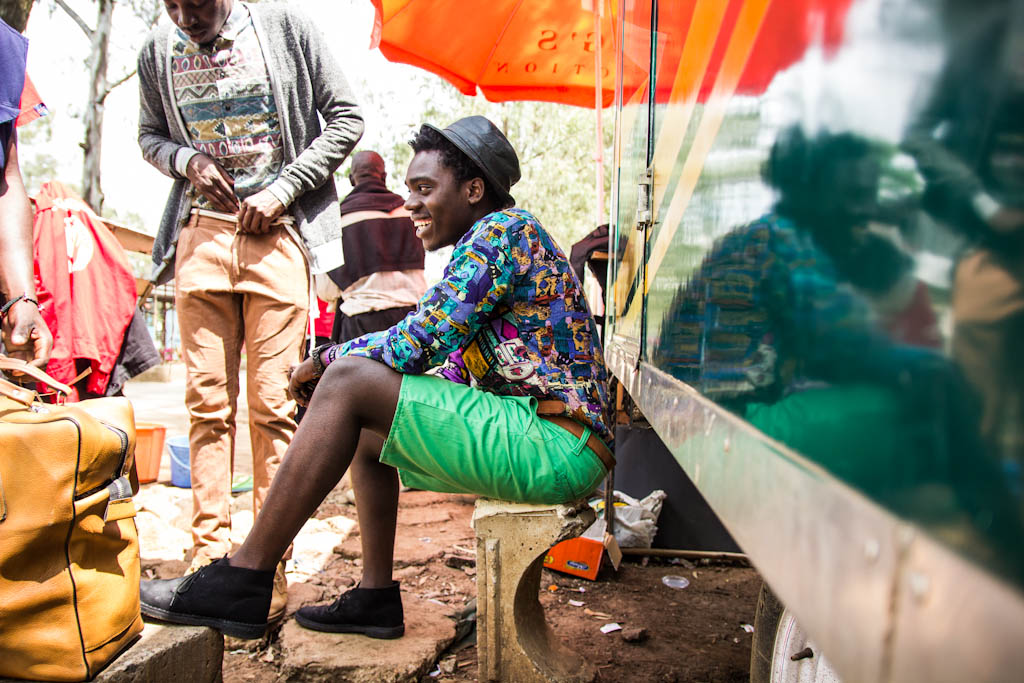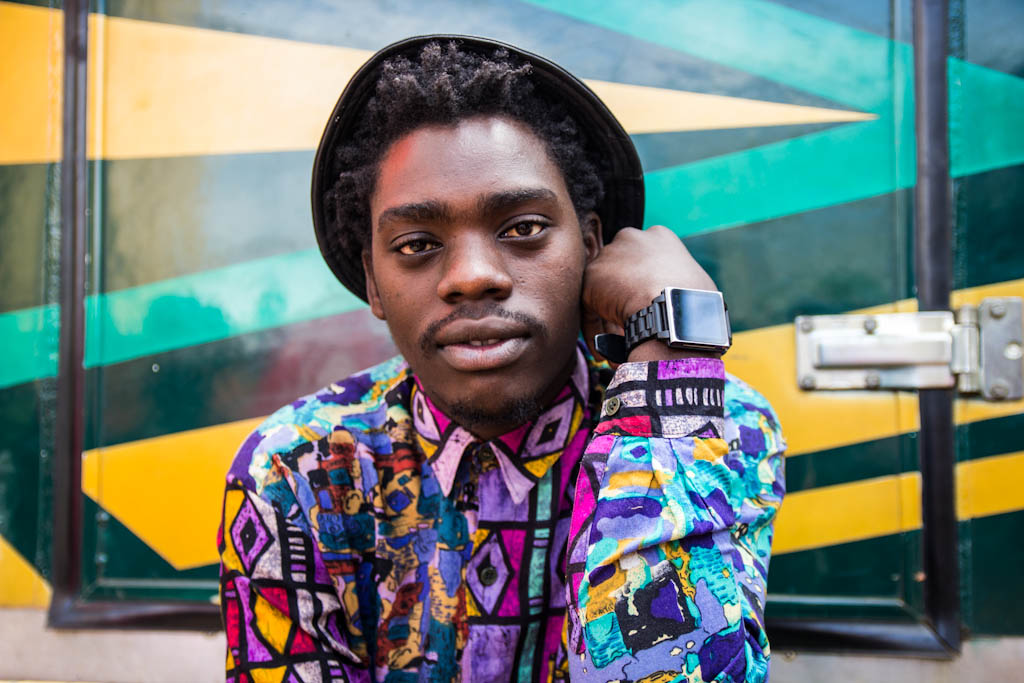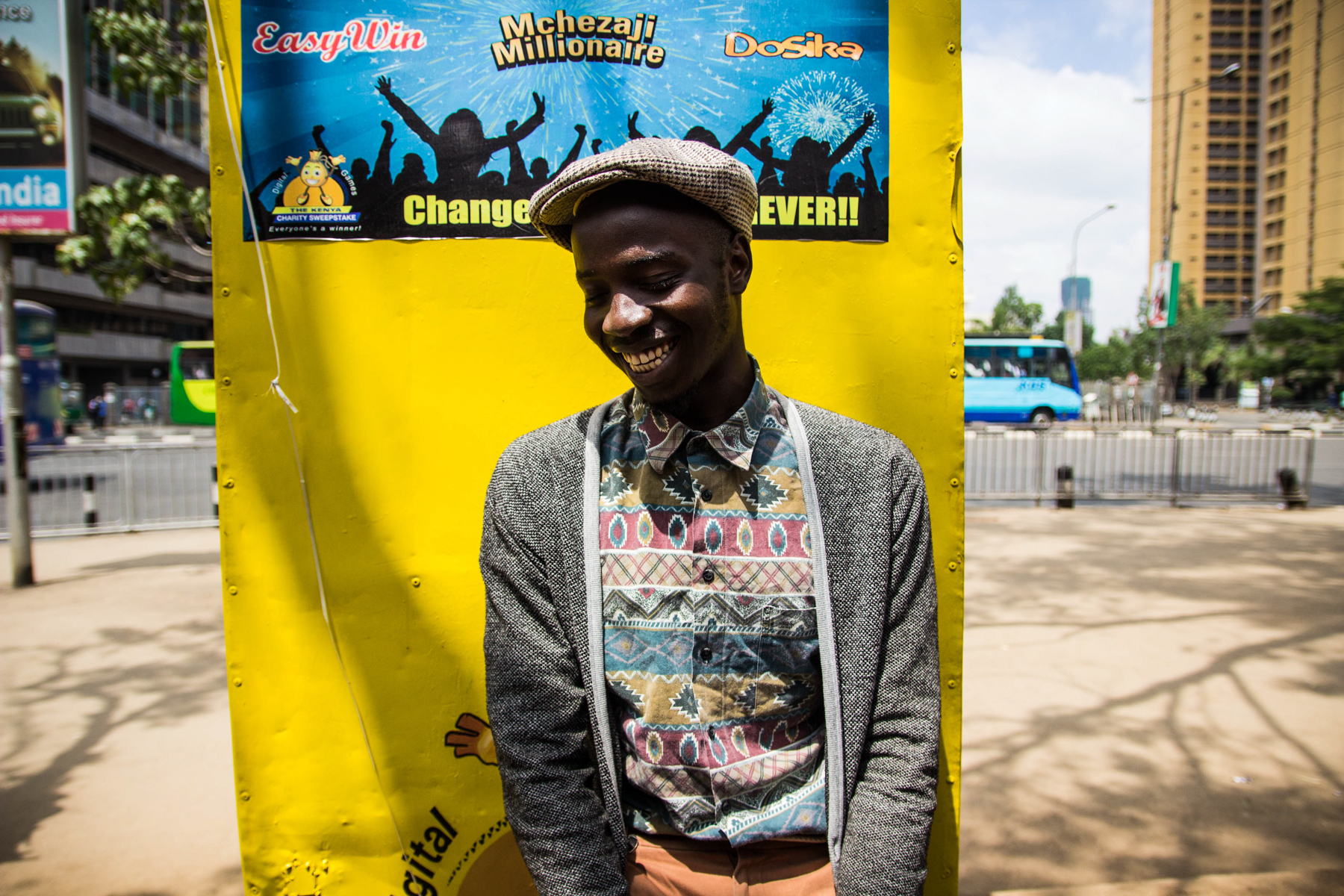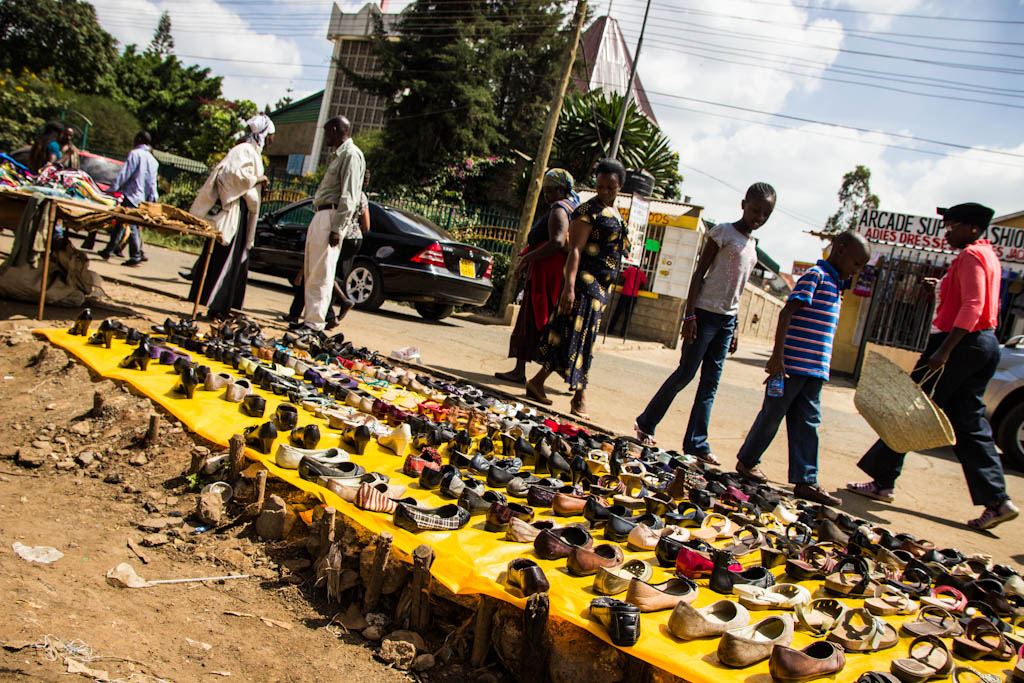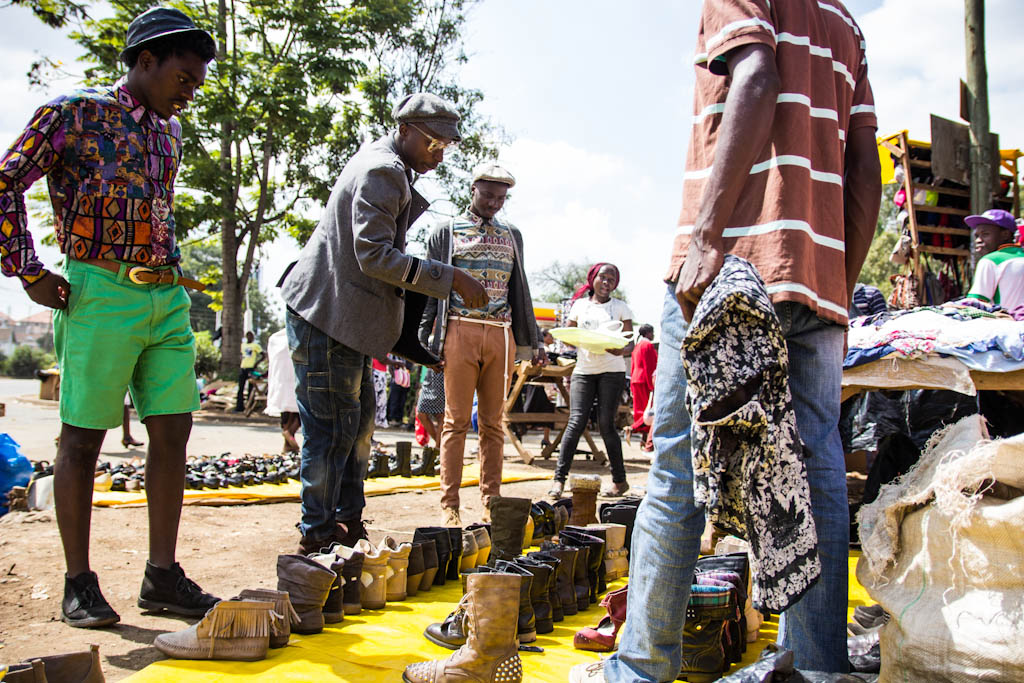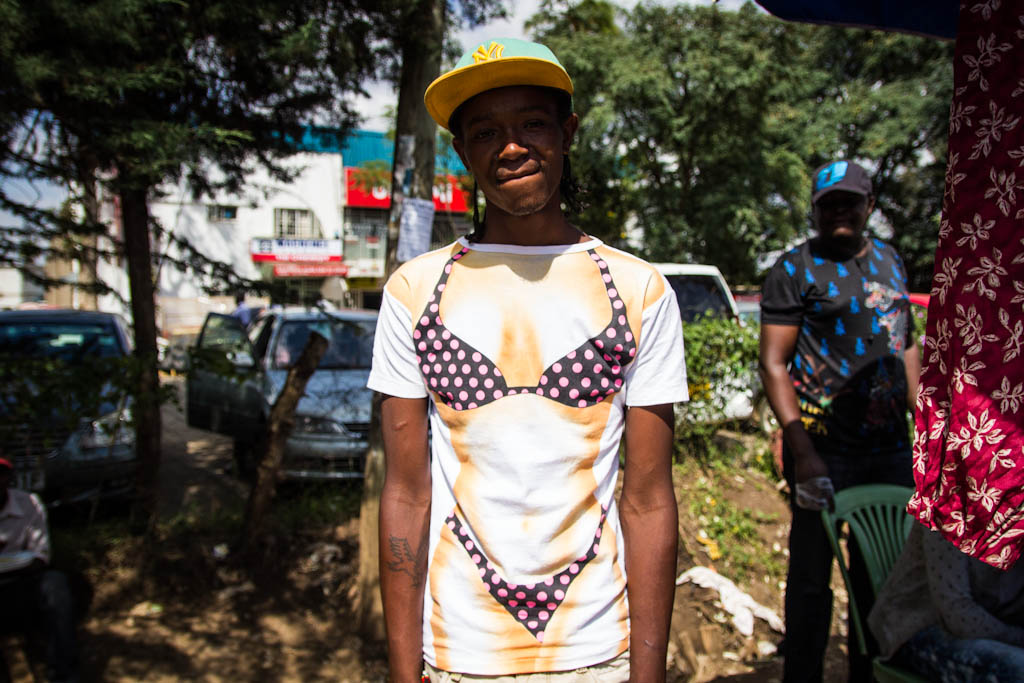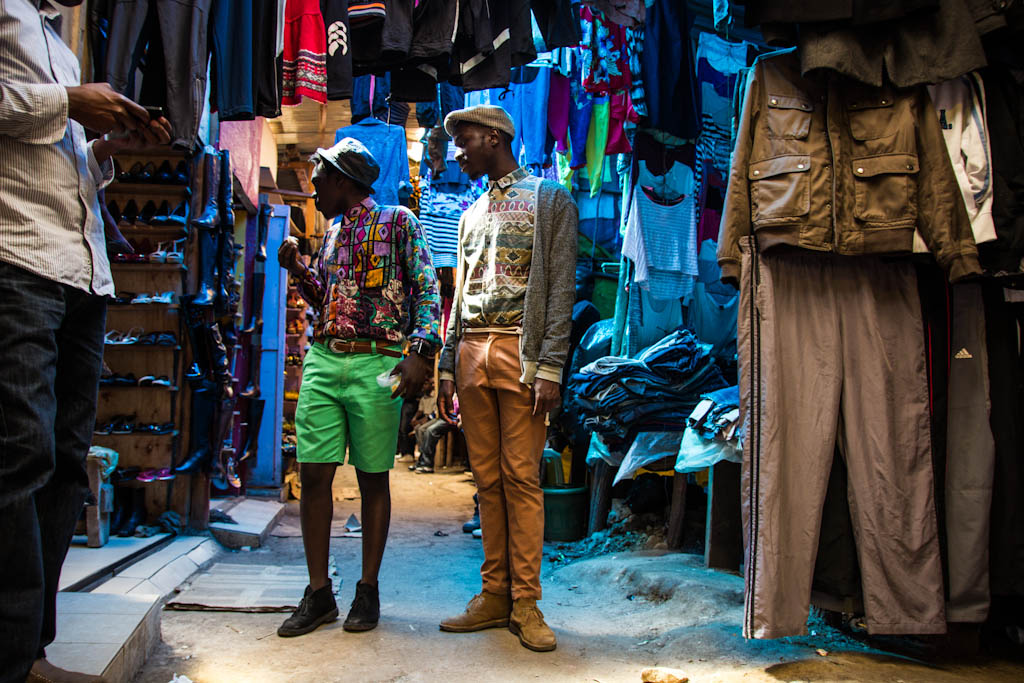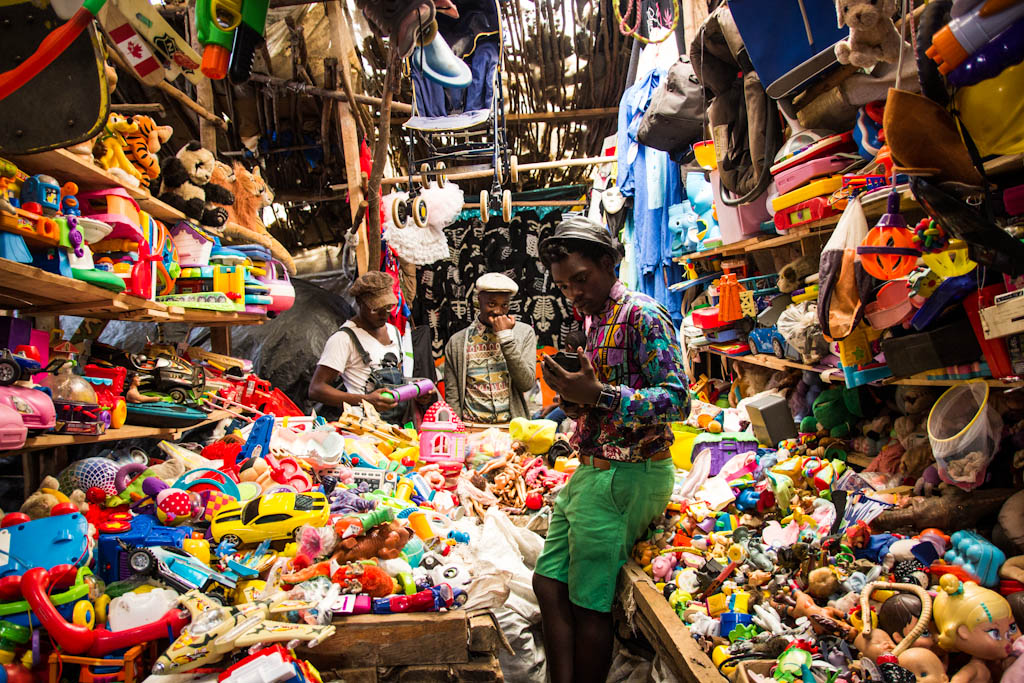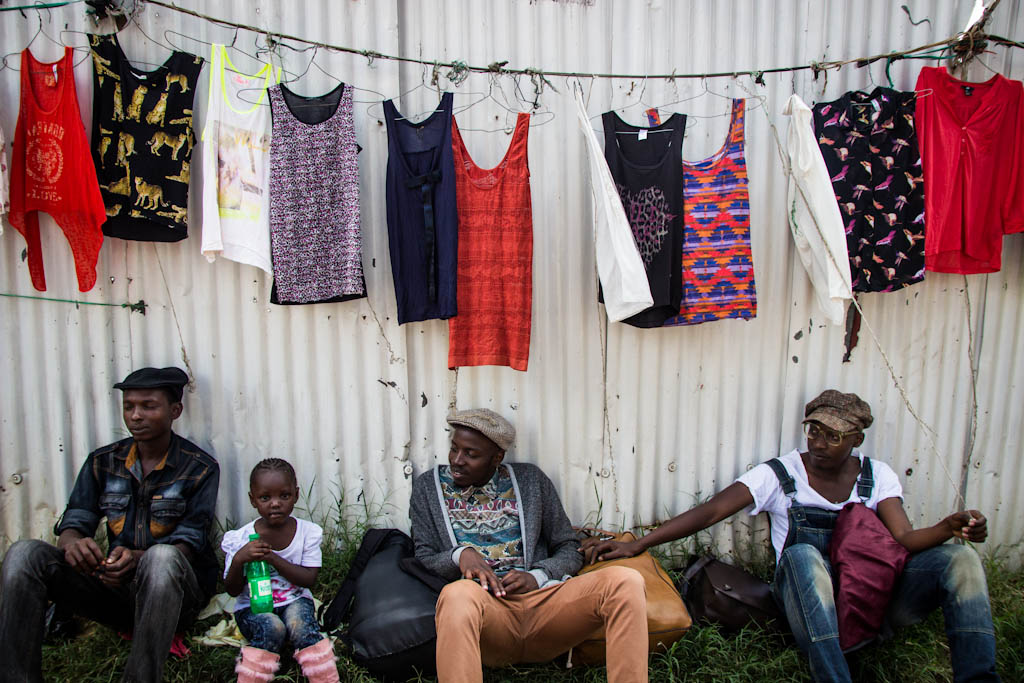Mtumbas (a Swahili word meaning ‘second-hand’) are modern day treasure troves jam-packed with chatty vendors who are ready to sell you everything from pots and pans to bedding to ‘boyfriend’ jackets (aka sport coats for women) to candlestick holders and even onions.
And aside from the bountiful produce, almost every item sold in the markets has been shipped from the West, often times the rejects of our own second-hand stores.
Every market is comprised of hundreds stalls made of tarpaulin, wood scraps, rusted doors and plastic — creating narrow, often muddy, alleyways customers must jump and trudge their way through in order to find buried treasure.
Vendors yell out their best prices as you walk by, waving shoes and sunglasses and hats in your general direction. Unless you’re fit to do some stubborn bargaining, be ready to pay twice the value of each item. But hey, it’s all a part of the experience.
Neibaz Fashion House — a collective of young Nariobi fashion lovers, takes mtumba shopping even one step further.
They’ve established a successful business focused on male lifestyle and fashion. The collaborative uses apparel purchased in Nairobi’s second hand markets to create editorials, marketing campaigns, advertisements, and trend analysis. Their work and fashion advice is quite popular among many a Nairobi gentleman.
You know, there is a difference between fashion and style,” adds Akuku of Neibaz. “Fashion is what culture claims as cool or trendy. Style is what you create for yourself as cool. Mtumba is style.”
[Written in 2014 for The Seattle Globalist. Neibaz Fashion House has since separated and Kevo Abbra, one of the featured models, has moved on to become a highly succesful Fashion Stylist and Set Designer.]
